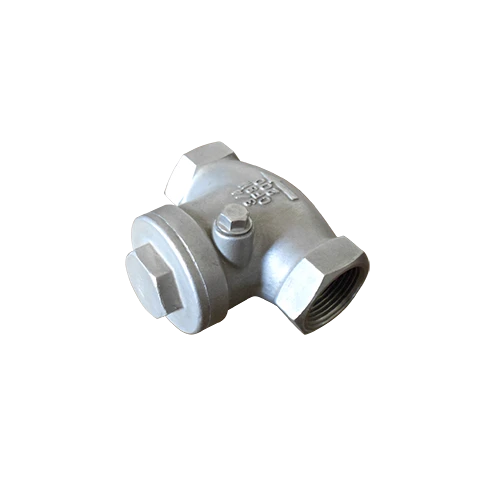Mobile:+86-311-808-126-83
Email:info@ydcastings.com
Choosing the Right Impeller for Your Motor to Enhance Efficiency and Performance
Understanding Impellers for Motors A Key Component in Fluid Dynamics
In the world of fluid dynamics, the impeller is a pivotal component that plays a critical role in the operation of various types of pumps and motors. Specifically designed to move fluids, the impeller is a rotating piece that converts rotational energy into hydrodynamic energy. As the heart of many machines, such as centrifugal pumps, hydraulic devices, and motors, understanding its function and design is essential for engineers and technicians alike.
An impeller typically consists of a series of blades or vanes attached to a rotating hub. When the hub spins, the blades push the fluid outward, thereby increasing the fluid's velocity and pressure. This principle underlies many applications, from water supply systems to industrial processes, making the impeller an indispensable element of motor-driven systems.
Types of Impellers
Impellers come in various designs, each tailored for specific applications. The most common types include
1. Closed Impellers Featuring a shroud on both sides of the blades, closed impellers are highly efficient and offer a good balance between performance and cavitation resistance. They are used widely in high-pressure applications.
2. Open Impellers These impellers have no shroud and are composed solely of blades. While less efficient than closed impellers, they are easier to clean and handle viscous fluids, making them suitable for applications involving slurries or shear-sensitive materials.
3. Semi-Open Impellers A compromise between open and closed designs, semi-open impellers have a shroud on one side. They maintain some efficiency while allowing for easier maintenance.
4. Mixed Flow Impellers These designs are capable of handling both radial and axial flow, offering flexibility in various applications, particularly in vertical pumps.
impeller for motor

The Importance of Impeller Design
The design of an impeller significantly impacts the overall performance of the motor and the system it serves. Factors such as blade shape, size, and the number of blades can influence efficiency and the fluid dynamics involved. Engineers must consider these variables when designing motors to ensure optimal performance under specific operating conditions.
For instance, a well-designed impeller can minimize energy consumption, reduce operating costs, and enhance the reliability of the motor. Conversely, a poorly designed impeller can lead to issues such as cavitation, which can cause damage to the motor and decrease its lifespan. It can also create turbulence, reducing the efficiency of the system.
Applications of Impellers in Motors
Impellers are utilized in a wide range of industries, from water supply and wastewater management to chemical processing and oil and gas exploration. In HVAC systems, impellers are crucial for maintaining air flow and regulating temperature. In the agricultural sector, they are instrumental in irrigation systems, ensuring that water is effectively moved to crops.
Moreover, advancements in technology are leading to the development of more sophisticated impeller designs. Computational fluid dynamics (CFD) tools enable engineers to simulate fluid behavior and optimize impeller designs for specific applications. This innovation not only enhances performance but also allows for the creation of more compact and efficient motor systems.
Conclusion
The impeller is a fundamental component in the design and function of motors used in fluid movement. As industries evolve and the demand for efficiency and sustainability continues to grow, the role of impellers and their design will remain crucial. Understanding the various types of impellers, their designs, and their applications can help engineers and professionals make informed choices in the development and maintenance of motor-driven systems. In a world where efficiency is paramount, the importance of the impeller cannot be overstated.
-
Why Should You Invest in Superior Pump Castings for Your Equipment?NewsJun.09,2025
-
Unlock Performance Potential with Stainless Impellers and Aluminum End CapsNewsJun.09,2025
-
Revolutionize Your Machinery with Superior Cast Iron and Aluminum ComponentsNewsJun.09,2025
-
Revolutionize Fluid Dynamics with Premium Pump ComponentsNewsJun.09,2025
-
Optimizing Industrial Systems with Essential Valve ComponentsNewsJun.09,2025
-
Elevate Grid Efficiency with High-Precision Power CastingsNewsJun.09,2025











